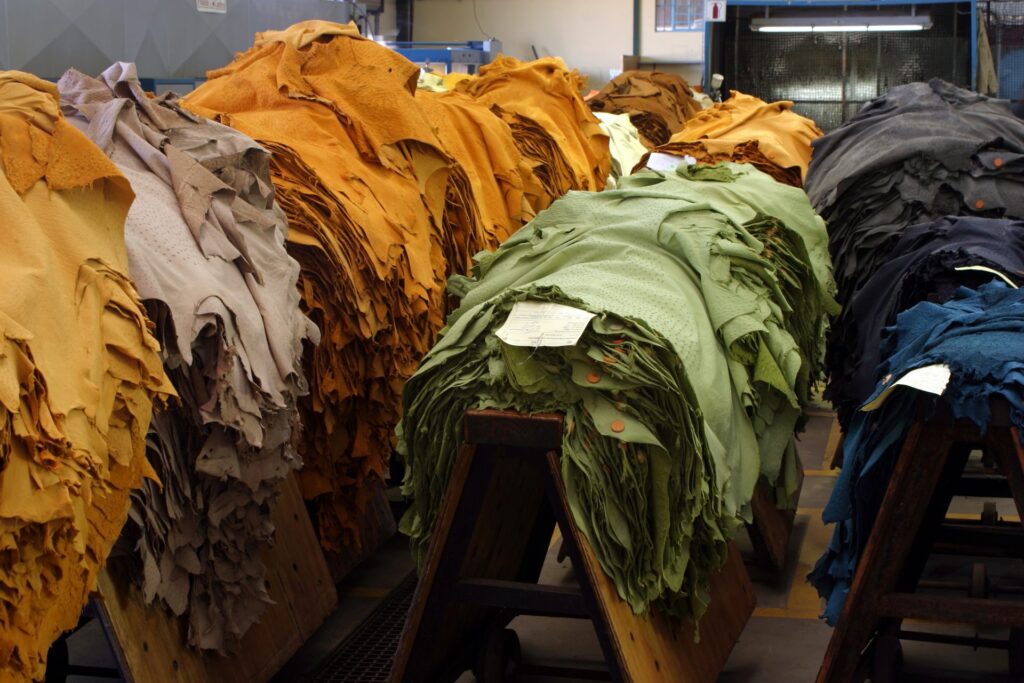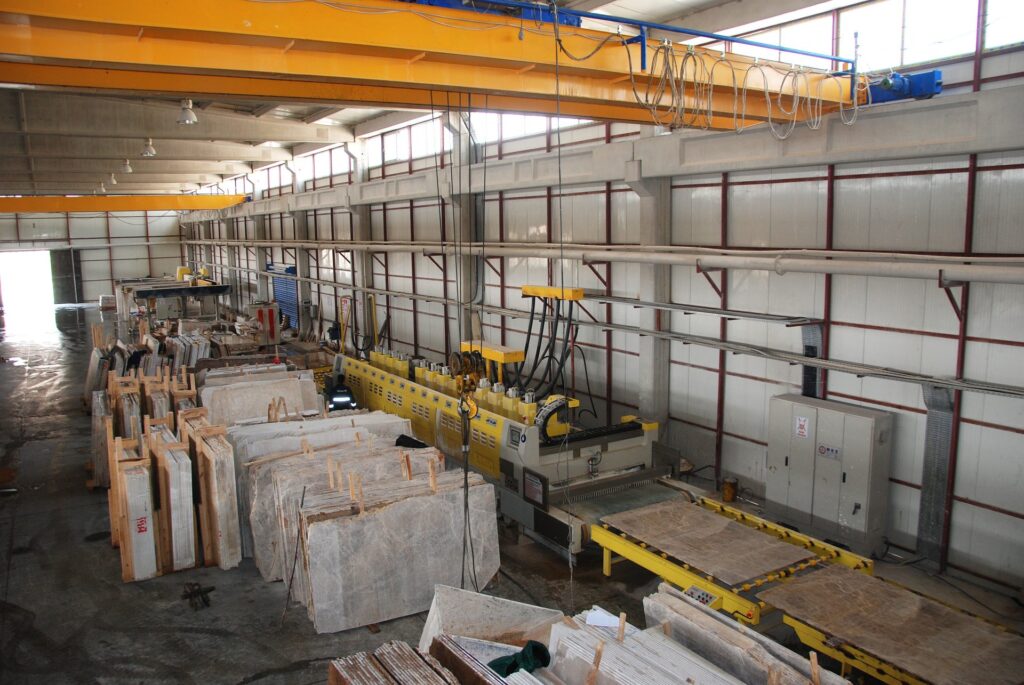
Textile
Magnesium to cope with textile industry wastewaters issue
The textile industry has high water consumption. The wastewaters are colored and an efficient color absorption technology is needed to treat the effluents.
The textile industry was the first user or dyes for coloration of the fibers. Different methods are available for the removal of dyes from the wastewaters.
Magnesium oxide offers an efficient and safe method for dye removal
Powdered Magnesium oxide is particularly efficient for the blue dye removal and can replace synthetic adsorbents. Also, Magnesium oxide is a well-known product for wastewater treatment applications: its high alkalinity power allows to decrease the quantity of chemicals needed for basification of the pH, thus resulting in an increased economic performance.
It is also a non hazardous material, safe to handle without specific prescriptions.
More details disclosed in the section dedicated to waste water treatment.

Leather tanning
The technical and demanding tanning process
Chromium sulfate compounds are active agents in the tanning reaction which penetrate into the skin of the leather and react with the collagen fibers to help preserve it.
The reaction extends for several hours resulting in a gradual and controlled increase in the pH value. Indeed, a non-controlled reaction leads to large chrome complexes which cannot sufficiently penetrate into the skin and the leather is only surface tanned.
Also, in extreme case, chromium III hydroxide may be formed by local precipitation resulting in a ‘chrome-spotted’ leather.
Quality Magnesium oxides for quality leather tanning results
The controlled chemical and physical parameters of our Magnesium oxide are essential in producing high quality leather. Magnesium oxide also affords maximum utilization of the chrome resulting in minimal losses and the chrome from the effluent steam can be recovered.
Our leather grade Magnesium oxide has a unique particle size to match the requirements of the leather tanning industry. It is already used in several tanneries around the world and has improved the quality of the leather.

Pulping and bleaching
Magnesium sulfite and oxide for pulping and bleaching
To produce paper pulp from wood chips two processes can be employed : mechanical or chemical method. The use of chemicals dissolves most of the lignin and hemicellulose present in the wood resulting in a better separation of the cellulose fibers than using the mechanical pulping processes.
The role of Magnesium sulfite and oxide for pulping and bleaching process
Magnesium sulfite is used within the sulfite process which consists of cooking wood chips in sulfurous acid and its use leads to a high quality pulp.
Our expertise in the Magnesite sulfite process allows us to select specifically the most suitable grades of Magnesium oxide for this pulping application. The controlled chemical and physical properties of our product ensures a reproducible process leading to high performing products.

Beverage
Magnesium is part of the beverage composition
Magnesium oxide and hydroxide is used as a Magnesium provider in the production of mineral water-based beverages such as beer. Mineral content of the water has to be consistent in the formulation and in the production of this type of beverage.
Magnesium hydroxide
A high purity Magnesium hydroxide optimizes the amount of Mg2+ needed for a reliable taste of the end product.
TIMAB Magnesium is the right partner to provide you with the Magnesium hydroxide you need in your formula.

Sugar refining
Magnesium oxide is used in both sugar beet and sugar cane refineries.
Due to the light color and designed reactivity, our natural caustic calcined magnesia grades provide very capable service in sugar processing industry.
Sugar refining in beet sugar production
In beet sugar production, Magnesium oxide (Caustic Calcined Magnesia – CCM) offers an alternative to soda ash and caustic soda with increased added value for your process performance. Added in the juice in the second carbonation stage, caustic calcined magnesia increases the alkalinity and the pH with a higher efficiency per unit weight compared to aforementioned reagents. Besides, Magnesium oxide reduces the hardness of the juice and accelerates the crystallization of the sugar.
Sugar refining in cane sugar production
In cane sugar production, Magnesium oxide partially replaces lime (Calcium oxide – CaO) to enhance the clarification process. Indeed, the settling mud acquires a higher density which makes it easier to filter and increases the clarifier capacity.
Caustic calcined magnesia also stabilizes the pH in the clarifiers during period of downtime and reduces scale in heater, evaporator and vacuum pan.

Abrasives
Magnesium oxychloride cement
The production of abrasive stones and grinding wheels requires high quality Magnesium Oxychloride Cement (MOC). In abrasive application SiC grains are bound into the Magnesium oxychloride cement to confer excellent abrasive properties.
A wide range of grades for a wide variety of abrasives end-uses
The end-users of abrasives such as polishing stones are the marble granite and mosaic processing industries.
Magnesia being a safer and environmental friendly product, Magnesium oxychloride cement is also the preferred binder for the production of mill stones for the dehusking and polishing of rice.
Our Magnesium oxide grades dedicated to the production of Magnesium oxychloride cement have specifically designed physical and chemical properties. The consistency of our Magnesium oxide guarantees a reliable cement production.

Boilers additives
Industrial boilers
Boilers are a common unit process in the industrial field especially in power generation, chemical and petrochemical industries. The different fuels used to vaporize liquid streams or to produce high temperature and pressure gas contain significant amount of sulfur and heavy metals such as vanadium. These components critically corrode and cause significant damage to the metal surfaces that are part of the process or in the surrounding environment.
Why boilers do need fuel additives with Magnesium components ?
Magnesium oxide and hydroxide are used in the production of fuel additives to prevent low and high temperature corrosion by capturing and neutralizing vanadium and sulfur compounds in the combustion process.
We offer reliable grades of Magnesium oxide and Magnesium hydroxide with low impurity levels, suitable for fuel additives production. We guarantee a high level of consistency in the physical and chemical parameters associated with our specifications.
Select a topic below to learn more about our other solutions for the industry :




